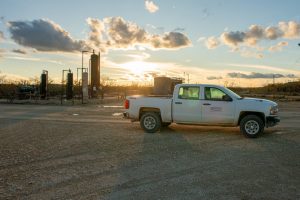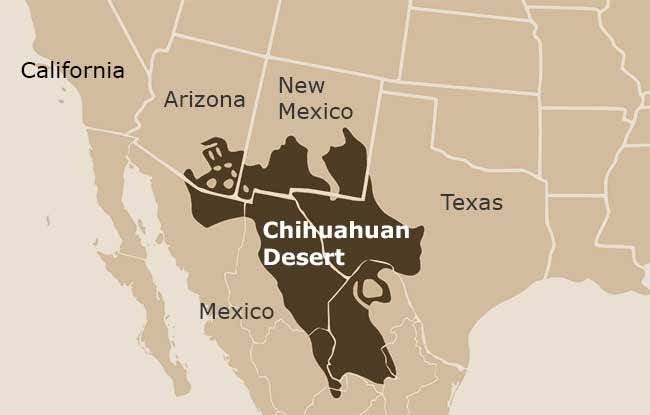
Who says oil and gas operators don’t care about the environment. Houston’s Apache Corporation has started a partnership with Sul Ross State University in Alpine, Texas to study well pad development and protection of the ecological system around the pads in the Permian Basin.
The partnership with the Borderlands Research Institute is to be a multiyear deal to investigate methods to improve habitat restoration efforts in the Permian Basin, according to the announcement. The goal is to publish a science-backed, best practice reclamation document to be shared with other Permian operators.
Typically, at the end of a well’s service life, the well is plugged, equipment is removed, and the pad is reseeded and allowed to gradually return to a natural condition. This project looks to accelerate a more vibrant return to nature by considering alternative soil preparation techniques, adding biochar to improve soil fertility, and incorporating undesirable scrub brush as a vegetative cover to hold soil moisture and discourage grassland animals from foraging on the seeds before they germinate.
“We are honored to partner with the Borderlands Research Institute on this important effort, which aligns with our mission to meet the growing demand for energy and to do so in a cleaner, more sustainable way,” said Jessica Jackson, Apache’s vice president of environment, health and safety.
“For many years, Apache has worked to restore well pads to their habitat potential. To further our efforts to continuously improve, Apache is supporting scientific research at sites in the Permian Basin to study the efficacy of methods for habitat restoration.”

The BRI project will help inform oil and gas operators in the Permian about how changes in the industry’s collective approach to restoring end-of-service well pads can have broader benefits to local biodiversity and reunite fragmented habitats.
BRI is dedicated to helping conserve the natural resources of the Chihuahuan Desert, the ecosystem in which a significant portion of the Permian Basin is situated. The Chihuahuan Desert ecosystem is essential for local food production, recreation, tourism and cultural assets. The Apache-funded project will assess differences in vegetation, soil humidity, carbon retention, insect diversity, and the economics of different restoration methods.
“We all depend on the energy produced in the Permian Basin to power our lives, and we look forward to bringing valuable science to the table to support enhanced restoration practices in the energy industry,” said Dr. Louis Harveson, the Dan Allen Hughes, Jr. Endowed Director of Borderlands Research Institute. “We appreciate the opportunity to partner with Apache on this important research and applaud their leadership on this issue.”
According to BRI’s research, desert ecosystems are one of the world’s most imperiled ecosystems despite their significance. While habitat restoration studies have been done in other locations, much remains unknown in the Chihuahuan Desert, particularly regarding habitat restoration under a sound study design. The reclamation of degraded landscapes is increasingly recognized as a critical step in alleviating industry impacts. With this project, Apache is helping to lead the way in improved management of such sites.
In addition, this project will also measure increases in soil carbon to passively sequester CO2 in healthy desert soils and will support Sul Ross State University student research through BRI. In total, this joint project will present best practices specific to the Chihuahuan Desert that are shown to have a demonstrated positive impact on overall biodiversity and natural ecosystem function.




